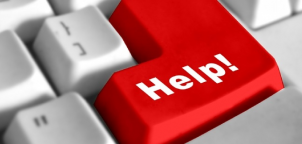|
In a crisis, social media can help you spread information quickly and hose down inaccurate speculation – however, if you get it wrong, it can backfire. Here are four tips to help you communicate well online in a crisis.
1. Be human, empathetic and respectful
During a crisis, it is important that your audience knows you care, before they care what you know. They will be more receptive to your messages, and more forgiving of your organisation, if you show its human side.
2. Know that poor social media use can make existing crises worse
Usually, the reputational damage you get during a crisis is less about what happened, and more about how you respond.
The wrong social media can do more harm than good. The recent Census debacle is a perfect example. Frustrated Aussies turned to Twitter, only to receive inaccurate and frankly insulting automated responses ‘the online form and website are operating smoothly as expected. Please try again’. This only added to the communications chaos that was the 2016 Census, and fuelled perceptions that the Australian Bureau of Statistics was incompetent and arrogant.
Again, be organised, be human and definitely don’t insult the public’s intelligence.
3. Social media marketing should be suspended in the event of a crisis
In the event of a crisis, make sure to stop all other social media marketing IMMEDIATELY! There is nothing worse than a poorly timed Facebook post or tweet, to position your organisation as insensitive.
For example, when Malaysian Airlines flight MH370 disappeared, tweeting “Want to go somewhere but don’t know where?” was a decidedly terrible move. They then backed it up on Facebook with a promotion asking customers what places were on their “Bucket List”! At a time when the entire world was watching and waiting for information, this did them absolutely no favours, with both posts exacerbating online backlash.
4. Treat exercises in crowd-sourcing with caution and respect, and maintain control
We all remember the various hashtag campaign debacles that we’ve seen over the years, and each of them reminds us of the same thing. If there is a problem with your product, or your service delivery, DON’T go to social media for content.
It’s important to tread with caution whenever you ask the public for comment. They may not respond in the way you expect, in fact they almost always don’t, and in turn cause some damage to the reputation you’ve worked so hard to build.
In a competition to name a polar research vessel, RRS Boaty McBoatface took out the title above RRS It’s bloody cold here and RRS Usain Boat, is a perfect example. In a similar case, GreenPeace was forced to name a whale Mister Splashy Pants. Whilst unexpected, at least these names weren’t offensive.
Mountain Dew were forced to withdraw a campaign to crowd-source a name for a new product after ‘Hitler did nothing wrong’ opened up a lead. It’s much safer to call for direct entries, and have the public then vote on the best you’ve carefully selected.
Remember, just because you love your organisation and will stick by them through thick and thin, doesn’t mean your customers will. Social media is the fastest way to get in contact with and reassure them, but don’t do so without a plan.
This topic was one of many covered in our recent seminar ‘Workplace Social Media – Prepare for Risks and Reap the Rewards’. To stay up to date with Pesel & Carr’s events, join our mailing list by emailing amanda.cirillo@peselandcarr.com.au.
|
